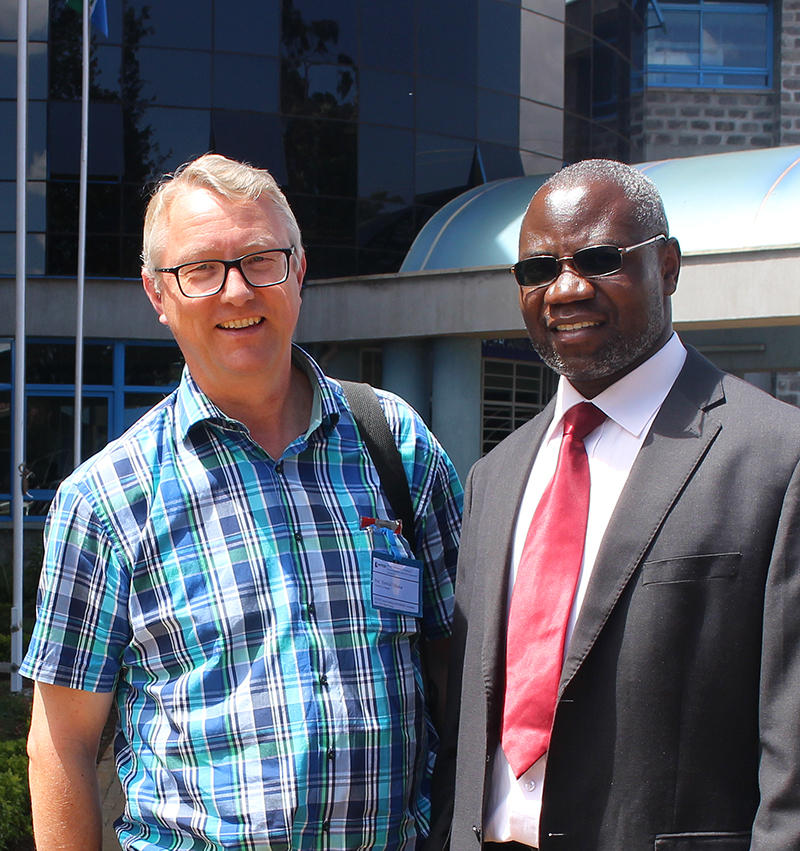NORHED Success Story!
The HI-TRAIN collaboration has established capacity-building courses in Health Information Technology in Kenya and Uganda that will continue after the project period.
Hovedinnhold
One of the best ways to manage health data is using information technology (IT). While many nations and companies have been involved in developing software solutions to manage health data, managing the infrastructure for its implementation requires a variety of IT skills and competencies. The HI-TRAIN project aims to respond to Kenya- and Uganda’s need for trained health information technologists to manage the digitalization of their national health data systems.
Status Report
A number of delegates from the Health Informatics Training and Research in East Africa for Improved Health Care (HI-TRAIN) project met at the Centre for International Health (CIH) at the University of Bergen (UiB) the first week of November 2017, a NORHED-funded project. All NORHED projects have an annual meeting to present the current project status with the NORHED representative(s) in charge, in this case, Rosa Alba Ortiz Valverde and Signe-Marie Breivik. The project leaders also used the meeting to profile the research activity of the PhD students associated with the project.
The HI-TRAIN consortium involves Moi University in Kenya and Makerere University in Uganda, as well as the Department of Informatics and the Centre for International Health at the University of Bergen. Professor Thorkild Tylleskär, from CIH, is involved in the project. He explained that these 2 African partners perfectly complement one another.
Makerere University has strong programmes in Informatics, but none that focus on the particular requirements of health informatics. Moi University, on the other hand, has extensive experience in IT system implementation. In particular, they have been working closely AMPATH and Indiana University. The competencies at each university thus complement each other perfectly for the kind of cross-over expertise, public health and IT, that is required for developing, implementing and administering national digital health information systems.
HI-TRAIN objectives
Tylleskär explains that HI-TRAIN had 2 main objectives. The first was to design and implement a Master of Science in Health Informatics programme at the 2 African universities. The programme is now being offered for the third time at Moi University and for the second time at Makerere University. It includes truly cross-over courses that provide medical personnel with necessary IT competencies, and IT personnel with a working understanding of medical issues.
The second objective was to train staff to be able to ensure the continuation of the Master programme once the project period is over. This capacity building involves the training of PhD students from the 2 universities. A total of 8 PhDs (4 from each university) are now in the middle of their work. The PhD students currently in Bergen presented their work at the November meeting in Bergen. The PhDs are jointly supervised by faculty in Africa and Bergen.
Sharing competency from Bergen
HI-TRAIN involves a cross-disciplinary, cross-Faculty, and cross institution collaboration of experts in Bergen. Khalid Mugal is a specialist in software security from the Department of Informatics (the Faculty of Mathematics and Natural Sciences at UiB). Ankica Babic is a specialist in Medical Informatics and the Department of Information Science and Media Studies (the Social Sciences Faculty at UiB). Yngve Lamo is a specialist in automation software development with a particular emphasis on health IT systems. He works at the University College of Western Norway, Department of Computing, Mathematics, and Physics.








